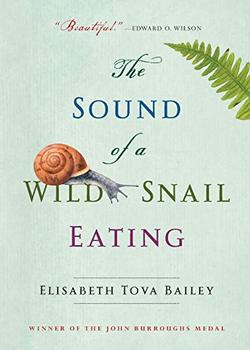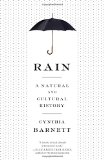Summary | Excerpt | Reviews | Beyond the book | Read-Alikes | Genres & Themes | Author Bio

The Everything of Its Two-Thousand-Year History
by Nicholas A. BasbanesA consideration of all things paper: Entertaining, illuminating, irresistible, a book that masterfully guides us through paper's inseparability from human culture.
A consideration of all things paper - its invention that revolutionized human civilization; its thousand-fold uses (and misuses), proliferation, and sweeping influence on society; its makers, shapers, collectors, and pulpers - written by the admired cultural historian and author of the trilogy on all things book-related: A Gentle Madness; Patience and Fortitude ("How could any intelligent, literate person not just love this book?" - Simon Winchester); and A Splendor of Letters ("Elegant, wry, and humane" - André Bernard, New York Observer).
Nicholas Basbanes writes about paper, from its invention in China two thousand years ago to its ideal means, recording the thoughts of Islamic scholars and mathematicians that made the Middle East a center of intellectual energy; from Europe, by way of Spain in the twelfth century and Italy in the thirteenth at the time of the Renaissance, to North America and the rest of the inhabited world.
Basbanes writes about the ways in which paper has been used to record history, make laws, conduct business, and establish identities ... He makes clear that without paper, modern hygienic practice would be unimaginable; that as currency, people will do almost anything to possess it ... that the Industrial Revolution would never have happened without paper on which to draw designs and blueprints.
We see paper's crucial role in the unfolding of historical events, political scandals, and sensational trials: how the American Revolution which took shape with the Battle of Lexington and Concord, began with the Stamp Act of 1765 ... the Dreyfus Affair and the forged memorandum known as "the bordereau" ... America's entry into World War I with the Zimmerman Telegram ... the Alger Hiss spy case and Whittaker Chambers's testimony involving the notorious Pumpkin Papers ... Daniel Ellsberg's release of the Pentagon Papers in 1971 and the scandal of Watergate.
Basbanes writes of his travels to get to the source of the story - to China, along the Burma Road, and to Japan, whose handmade paper, washi, is as much an expression of the human spirit as it is of craftsmanship ... to Landover, Maryland, home of the National Security Agency and its one hundred million ultra secret documents, pulped by cryptologists and sent to be recycled as pizza boxes and egg cartons ... to the Crane Paper mill of Dalton, Massachusetts, a seventh-generation family-owned enterprise, the exclusive supplier of paper for American currency since 1879 ... and to the Kimberly-Clark mill in New Milford, Connecticut, manufacturer daily of one million boxes of Kleenex tissue and as many rolls of Scott kitchen towels.
Entertaining, illuminating, irresistible, a book that masterfully guides us through paper's inseparability from human culture.
In On Paper, Nicholas Basbanes has given us more than a treatise on the making of paper but a social history spurred by, and recorded on, thin slices of fiber which carry the history, thoughts, fears, and dreams of humanity...continued
Full Review
 (699 words)
(699 words)
(Reviewed by Bob Sauerbrey).
John Muir said, "When we try to pick out anything by itself, we find it hitched to everything else in the universe." In On Paper, Nicholas Basbanes centers on something – paper - and makes it a hub whose spokes can touch everything else on Earth.

 Many micro-histories have been published in the last few years, and they are as varied as they are popular. Banana by Dan Koeppel is one, Coal by Barbara Freese is another. The list goes on and on. What is it that readers find so fascinating about these in-depth examinations of a single thing? Perhaps the most tangible reason is that these items are familiar to our lives – we know them inside and out, we use them every day – and because of these relationships, we are intrigued to...
Many micro-histories have been published in the last few years, and they are as varied as they are popular. Banana by Dan Koeppel is one, Coal by Barbara Freese is another. The list goes on and on. What is it that readers find so fascinating about these in-depth examinations of a single thing? Perhaps the most tangible reason is that these items are familiar to our lives – we know them inside and out, we use them every day – and because of these relationships, we are intrigued to...

If you liked On Paper, try these:

The Sound of a Wild Snail Eating
by Elisabeth Tova Bailey
Published 2016
In a work that beautifully demonstrates the rewards of closely observing nature, Elisabeth Bailey shares an inspiring and intimate story of her uncommon encounter with a Neohelix albolabris —a common woodland snail.

by Cynthia Barnett
Published 2016
Rain is elemental, mysterious, precious, destructive. It is the subject of countless poems and paintings; the top of the weather report; the source of the world's water. This is the first book to tell the story of rain.
The most successful people are those who are good at plan B
Click Here to find out who said this, as well as discovering other famous literary quotes!